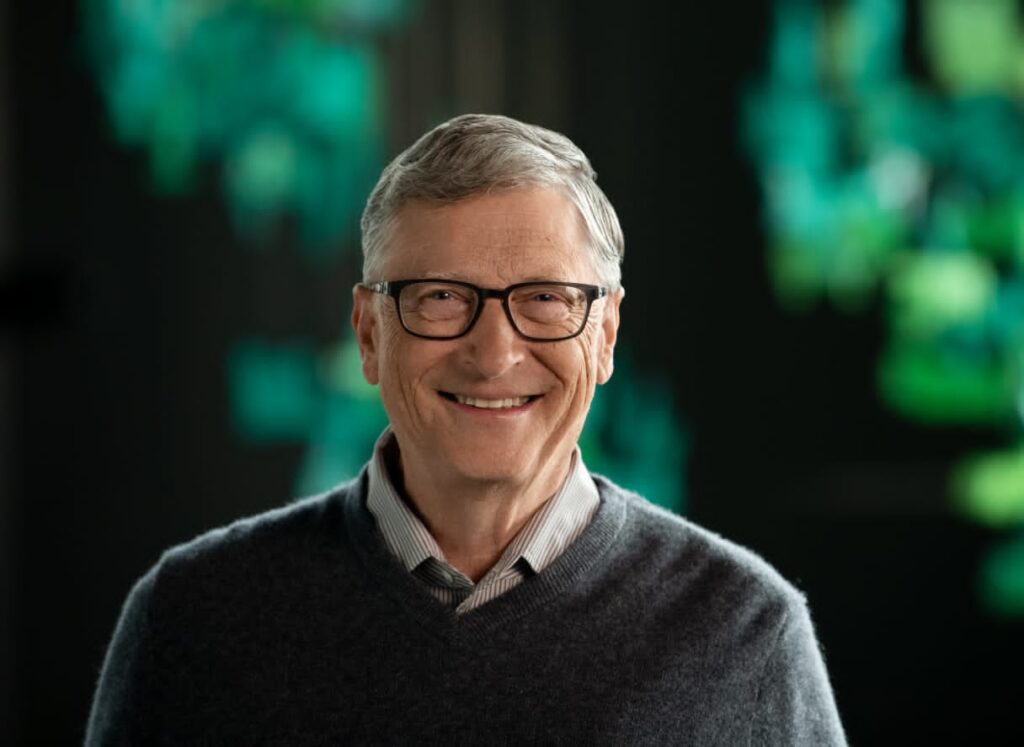
The Bill & Melinda Gates Foundation (BMGF) has unveiled its latest initiative, celebrating the remarkable achievements of 50 exceptional grant recipients who are pioneering revolutionary solutions in global health and development through the utilization of artificial intelligence (AI)-enabled large language models (LLMs).
These distinguished individuals, hailing from various corners of the world, are set to receive substantial grants of up to $100,000 each, propelling their groundbreaking research projects to new heights. This collective investment amounts to an impressive $5 million, a testament to the Foundation’s commitment to catalyzing progress and fostering innovation.
Within this extraordinary cohort, four trailblazing innovators from Nigeria have been recognized for their exceptional contributions. However, this dynamic initiative extends far beyond borders, encompassing visionaries from diverse nations, each armed with a unique approach to address pressing global health and development challenges.
The announcement, made through an official statement on Thursday, illuminates the profound impact of BMGF’s Grand Challenges Program. This family of initiatives is designed to nurture innovation and ignite creative solutions for the world’s most urgent issues.
An impressive testament to the program’s reach is the staggering influx of more than 1,300 proposals received within a mere two-week period after the application process was unveiled. Astonishingly, over 80 percent of these compelling proposals emerged from low- and middle-income countries (LMICs), underscoring the global resonance of the endeavor.
The fruits of these audacious projects are poised to be unveiled at the highly anticipated Grand Challenges Annual Meeting, scheduled to convene in Dakar, Senegal, this October. This pivotal gathering promises to serve as a platform for the exchange of visionary ideas, fostering collaboration among these exceptional minds.
At the heart of this endeavor is the unwavering mission to enhance livelihoods and uplift communities on a global scale. The clarion call for proposals was meticulously crafted to resonate with researchers and innovators in low- and middle-income countries, with an overarching goal of dismantling global disparities and amplifying well-being universally.
BMGF’s official statement underscores the transformative potential of AI-driven LLM technology. “The nearly 50 selected projects from 17 LMICs are aligned with the foundation’s goal of fostering a global innovation ecosystem in places where it will have the most impact,” the statement emphasizes. “Responsible and safe use of AI-driven LLM technology has the potential to help solve some of the world’s toughest health and development challenges.”
The Foundation envisions a future where AI-driven LLMs not only empower LMICs but are also designed in collaboration with the very communities they seek to benefit. Recognizing the risk of perpetuating existing inequalities, BMGF underscores the importance of responsible development, grounded in ethical considerations and a profound understanding of end-user needs.
Juliana Rotich, co-founder of iHub, an incubator for technology entrepreneurs in Nairobi, underscores the imperative of ethical AI development. “Too often, advances in technology deliver uneven benefits in many parts of the world due to existing patterns of discrimination, inequality, and bias,” Rotich notes. “AI is no different, with most of the tools being developed in the Global North using data from lower-resourced regions that are often incomplete or inaccurate.” She passionately advocates for AI development that prioritizes inclusivity and user-centricity.
The Grand Challenges program, deeply committed to building upon existing technological foundations, is set to unravel a spectrum of health and development challenges across LMICs. Nigeria, a focal point of this endeavor, proudly contributes four innovative projects to this global initiative. Meanwhile, South Africa and Kenya demonstrate their prowess with seven and five projects respectively, illustrating the remarkable diversity and potency of African innovation.
These Nigerian projects range from a robust large language model (LLM) tool designed to support frontline health workers in resource-constrained settings, to the integration of LLMs in women-centered care, an adaptive learning content catering to rural students, and harnessing LLMs for enhanced financial inclusion.
Zameer Brey, the interim deputy director for Technology Diffusion at the Gates Foundation, lauds these local innovators as champions of change. He observes how they harness the formidable potential of AI and LLMs to redefine possibilities within their communities and beyond.
Kedest Tesfagiorgis, the deputy director of Global Partnerships and Grand Challenges at BMGF, extols the power of a globally interconnected community of thinkers. “Maximizing the potential of AI requires a global community of creative thinkers bringing their unique perspectives and learning from each other,” she emphasizes, highlighting the collaborative spirit underlying this initiative.
The very essence of the Grand Challenges family of programs is rooted in a timeless concept – the notion that by pooling solutions to unresolved problems, we spark innovation and accelerate progress. This enduring philosophy has guided the Bill & Melinda Gates Foundation and its Grand Challenges partners since 2003, propelling them to address the most pressing global health and development issues faced by the world’s most vulnerable populations.
Through unwavering dedication, BMGF and its partners have bestowed over 3,600 grants upon a diverse array of problem solvers across more than 100 countries. In the process, they have cultivated a global innovation ecosystem, fostering transformative change where it matters most.